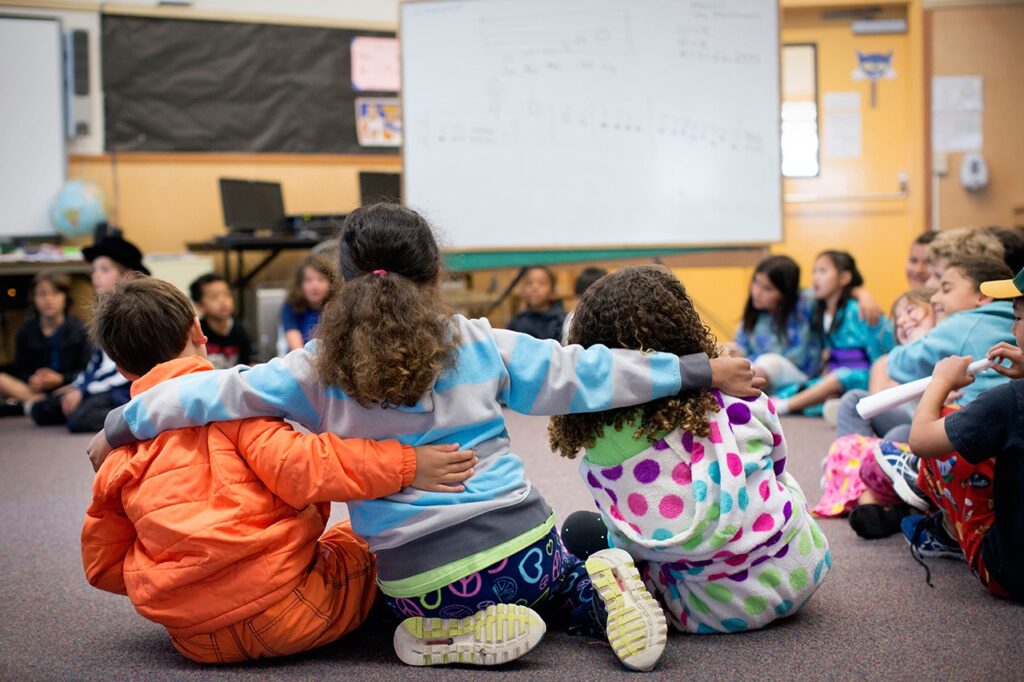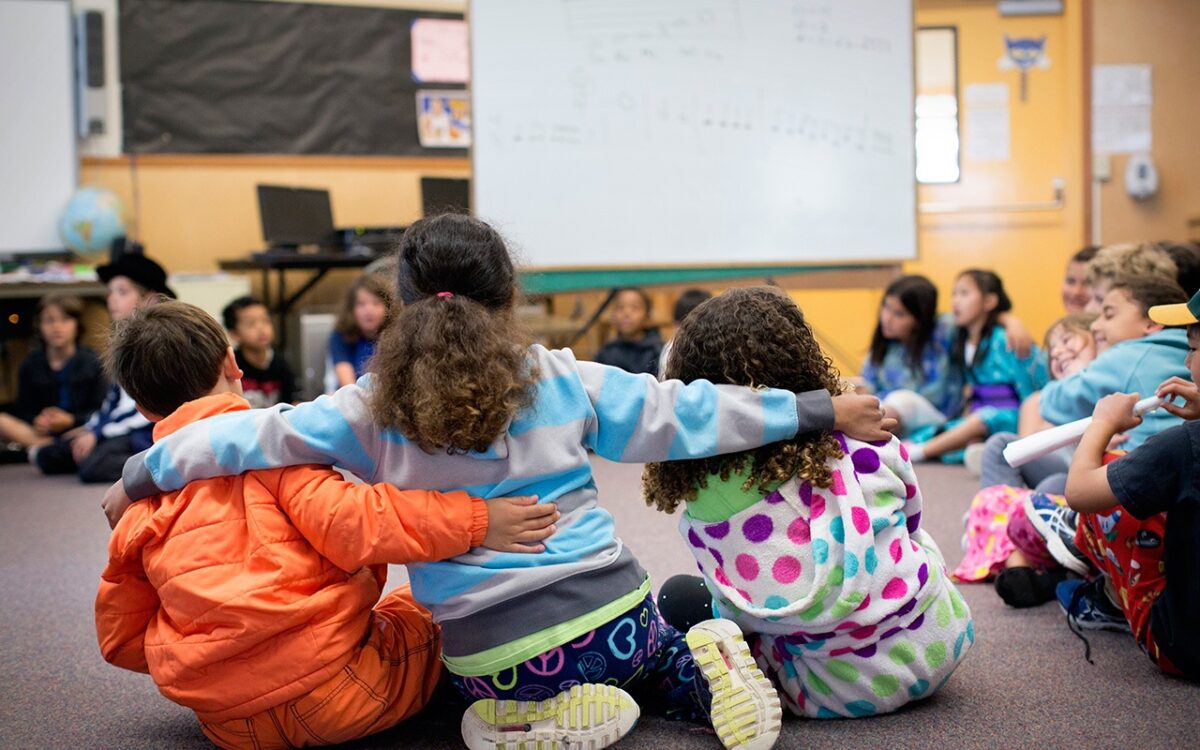 Alison Yin for EdSource
Alison Yin for EdSourceEducators who want to implement more positive disciplinary practices can now access an online national repository of research-based alternatives to suspension and expulsion.
The National Clearinghouse on Supportive School Discipline (NCSSD) site is divided into four topic areas that provide strategies and tools:
- Conditions for Learning
- The Pipeline to Prison
- Positive Approaches to School Discipline
- Discipline Disparities
California has been in the forefront in the move toward more positive disciplinary approaches. Both Los Angeles Unified and San Francisco Unified, for example, have eliminated “willful defiance” as a reason to suspend or expel students. A new law, authored by Assemblyman Roger Dickinson, D-Sacramento, makes it illegal for school districts to expel any student or suspend any K-3 student for willful defiance. However, teachers can still send a student to the principal’s office for defiance.
Many districts in the state have been implementing Positive Behavioral Interventions and Support approaches to discipline, which focus on school climate and rely on data to determine where problems are occurring. For example, if there is conflict between the 7th- and 8th-graders during lunch time, the school could decide to stagger the lunch periods. Some districts are also using restorative justice, which helps students see the harm they have caused and requires them to make amends. For example, if a student disrupts a class, that student could stay behind to help the teacher prepare for the next day.
In addition, the California Department of Education recently released a new framework for change as districts develop their school accountability plans. The Quality Schooling Framework puts more emphasis on school culture and climate.
The new national repository includes a Conditions for Learning School Audit Tool to help administrators gauge the health of their school’s learning climate. Another tool, Discipline Disparities Risk Assessment Dashboard, helps school leaders analyze student-level discipline data. It was constructed by the American Institutes for Research (AIR), a nonprofit research organization based in Washington, D.C., and funded by The Atlantic Philanthropies.
“The National Clearinghouse is the most comprehensive assembly of practical information available anywhere for practitioners who want to improve discipline, engagement and conditions for learning,” said David Osher, vice president and AIR Institute fellow who is the principal investigator for the national clearinghouse, in a prepared statement. “It’s not just information on the latest studies, but tools and links for building district, school and educator capacity to reduce disparities and problem behavior and to increase student self-discipline and engagement.”
To get more reports like this one, click here to sign up for EdSource’s no-cost daily email on latest developments in education.















Comments (1)
Comments Policy
We welcome your comments. All comments are moderated for civility, relevance and other considerations. Click here for EdSource's Comments Policy.
Annice Overall 10 years ago10 years ago
I am overwhelmed by all the broad topic information I encounter when I search for ways to address behavior & discipline and yet I am frustrated by the absence of specific front-line strategies for those of us working directly with difficult children. I fully understand PBIS; the School to Prison Pipeline; failure of Zero Tolerance, etc...I can spend hours wading through skillfully wordsmithed discussion about stakeholders, universal interventions, etc...without finding anything to help when … Read More
I am overwhelmed by all the broad topic information I encounter when I search for ways to address behavior & discipline and yet I am frustrated by the absence of specific front-line strategies for those of us working directly with difficult children. I fully understand PBIS; the School to Prison Pipeline; failure of Zero Tolerance, etc…I can spend hours wading through skillfully wordsmithed discussion about stakeholders, universal interventions, etc…without finding anything to help when all that fails (for whatever reason). On the front lines we are dealing with kids who may be the products of dysfunctional environments & policies, but while the stakeholders are trying to fix those systemic issues, we still have to deal with the behavior of the students that are in our classrooms now, disrupting the learning & endangering others in many cases. When students do commit serious behavioral infractions, despite preventive efforts, there must be consequences. I need to know what works in THESE situations.
Can anyone point me toward some helpful resources?
Thanks!